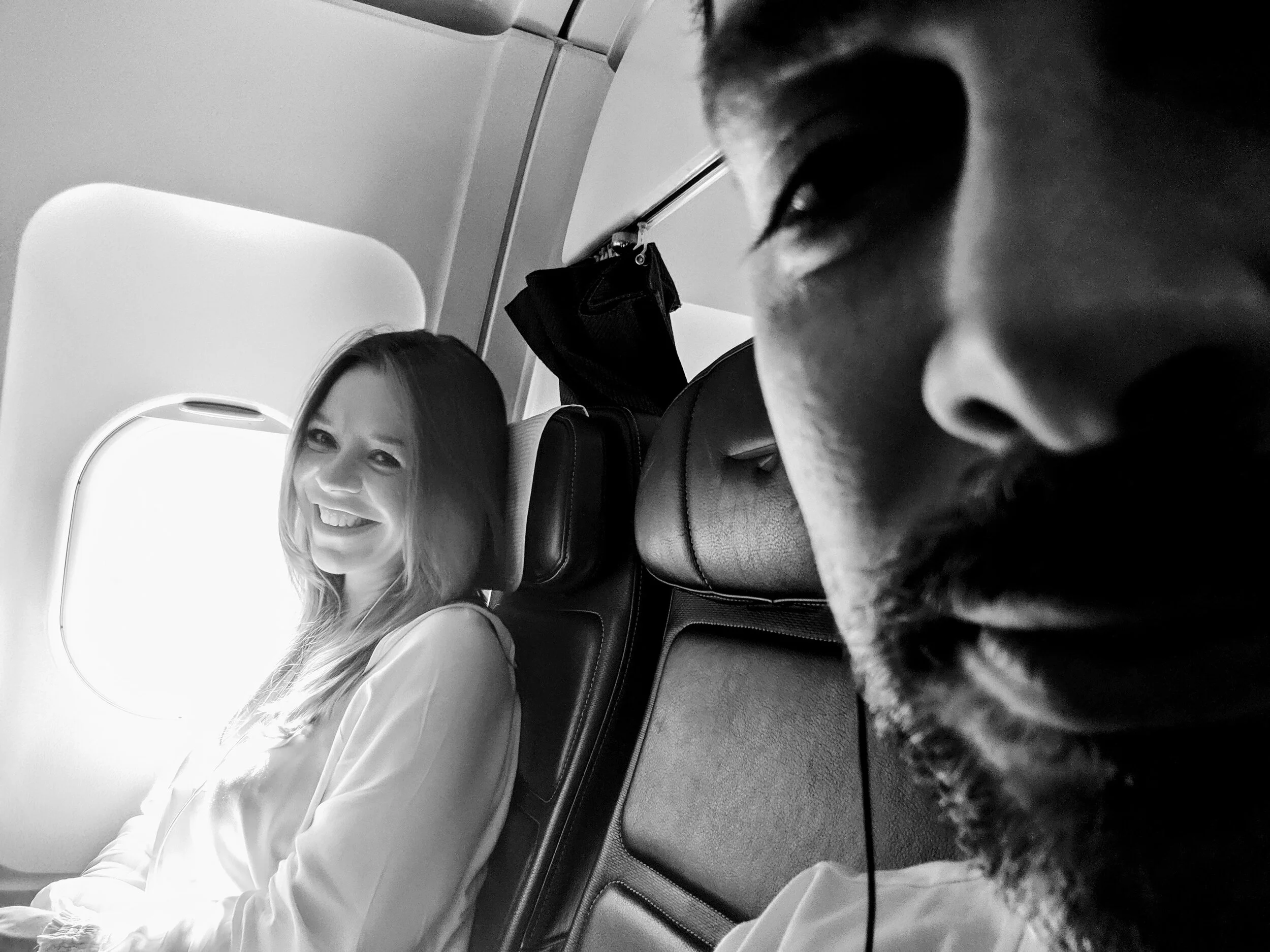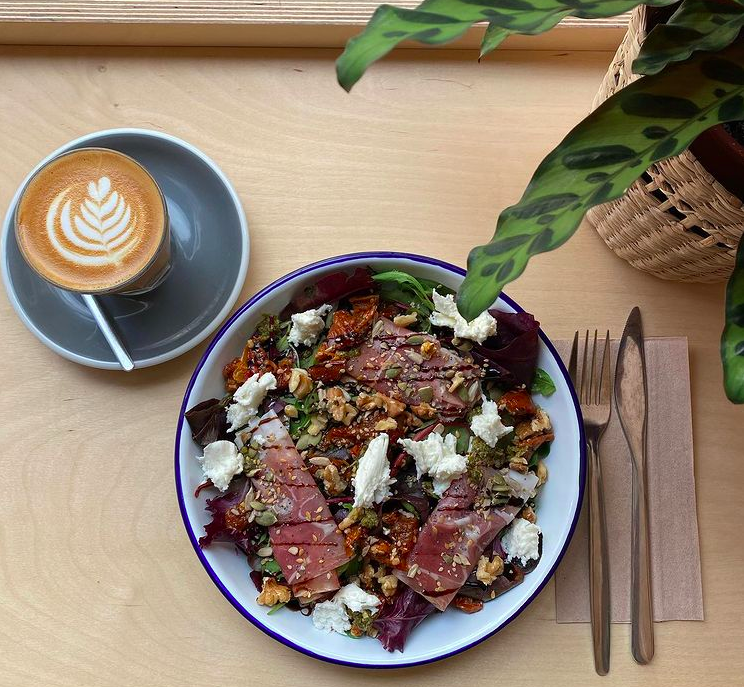When it comes to finding a site, there are 3 common avenues that you can use to get your business started. The first is to agree on a new lease from a landlord and build from scratch; the second to buy an existing lease from a tenant (including in most cases the fixtures and fittings at the site) and the final option is to buy an existing business entirely, and pick up where the last owners left off.
We spoke with Hannah Cork, who recently bought Fig & Sparrow in Manchester. There are several benefits to buying an existing business. It’s an easy way to get a physical site or premise, you acquire resources – a brand, a team, existing supplier arrangements – everything is in place and ready to go from day one. However, you can also inherit a few skeletons in the closet, as Hannah learnt the hard way…
Today we will cover:
The reason for and benefits to buying an existing business
How to balance change vs the existing expectations of customers and staff
The steps for finding and buying a business
Due diligence and why it is so important
Who are you and how do you make a living?
I’m Hannah, I recently purchased Fig & Sparrow on the 17th of August last year. It’s a coffee shop based in the Northern Quarter in Manchester that has been trading for 8 years. And I bought it in the middle of the COVID crisis…
That’s a bold move!
Yeah it’s been challenging and painful at times, but we knew it would be so at least my expectations were set right and I bought knowing there would be a wait for things to get back to normal. Between the two lockdowns we started to see the true potential of the shop, which was really promising, but now we’re trading down at 40% compared to last year.
How have you managed to adapt the business for Covid?
One of the biggest challenges that we faced operationally has been carrying over the staff and working ethos from before. We retained every member of staff, but the challenge is that you inherit the same working practices from before. We’ve had to be incredibly flexible with the workforce rota (due to the pandemic), and try to reduce the hours of staff accordingly with the turnover we have now. The pushback from staff on that has been difficult, and we’ve spent 20 to 30 hours in conversation with managers and staff on how to best navigate this period.
We’ve now managed to get staff costs down to 25% to 30% of turnover by changing the way we work. Getting an app developed, changing the flow of the shop, matching staff to the peak hours … but it’s been a challenge.
What’s it like inheriting a brand? And how do you balance the changes you want to make with the followers of the original business?
We’ve rebranded in terms of a new logo, it’s a subtle change, and that has been received well. We’re in the process of modernising the shop and update it from the rustic look that it had. We would like it to be more modern, but we feel our customers like the look and feel as it is an inclusive space. So if we went full modern, we probably wouldn’t attract such a broad and wonderful range of people. It’s a balancing act.
Why did you decide to buy a business instead of taking on a new site?
For me it was availability of time more than anything. It was a shortcut for some of the pain of making a brand and having the marketing in place. All the administration for the setup was all done from the get go. Although the process took a long time to complete due to the onerous due diligence period, I still think we saved a huge amount of time, versus if we were to have set up ourselves. And to have a passive income from day one was very important.
We opened on August Bank Holiday, which is Pride weekend in Manchester, one of the busiest weekends of the year. We were incredibly busy and traded better in comparison with the year before. Our initial view was we were going in the right direction, until the latest lockdown set us back.
What are the steps to acquire a business? Why this business?
Sales were important. We wanted a business with a high cash conversion from day one, which coffee shops are renowned for. I was looking for a site that would generate revenue of about £400,000 so the fact it had traded at £320,000 with little food sales, there was potential there to increase it.
It has a high footfall location, and I was looking for a site that had a relatively low fixed overhead cost, which Fig & Sparrow does relatively well with rent at £25,000 a year. The overheads felt more than manageable.
I’d also add to that I was looking for a business where the owner’s involvement was relatively low, so I didn’t want an owner run business.
Once you’d found the right spot, what happened next?
First step was to find an economical solicitor that you can have a positive working relationship with. We had quite a challenge with ours, so if there was a lesson learned there, having a good relationship with the solicitor is essential. Get the solicitor to outline to you the different options to buying a business – there is more than one way to skin a cat, and some routes are more costly & time-consuming than others.
Once that was in place, the solicitor process really set the key milestones. We had first the heads of terms (HOTs) which Cafe Ventures helped prepare and needing that to be agreed and countersigned by the sellers. This is the principles of the deal, the headlines if you like. Everything else that flows from that such as the SPA (Share Purchase Agreement) is in my head legal detailing.
After the Heads of Terms, our timeline was quite muddled (due to Covid and the first lockdown), but largely you are straight into the due diligence phase, which was a huge phase. One of the first key milestones I’d recommend you do is review and look at the lease contract you’ve got with the landlord. Better still meet with the landlord, find out the nature of the relationship. Every seller will tell you they are on first name terms with the landlord … the reality is most aren’t and a bad relationship with your landlord can really impact on your business.
Some financial gremlins around the lease came out of the woodwork, in particular with the leasing company and the landlord. There were backdated debts in excess of £2,000 that neither party chose to disclose in the due diligence process. I wish we had met with the landlord or their letting agency and made sure face to face that the accounts were up to date.
How do these gremlins manage to evade the due diligence process?
There are many ways you can do a deal. One is to have a disclosure letter, which is really straight forward, it’s a blanket statement from the owner that everything that they’ve said in the course of the deal is fair and true. The owner’s solicitors had amended the deal to give specific warranties, which meant that they provided a huge swathe of documentation that it was up to myself to look through and agree on.
Couldn’t your solicitors help with that?
We had an agreement in place with them that we’d have a straightforward deal that didn’t cover these laborious terms, so I had agreed to do the due diligence myself. If I had paid a solicitor you’d have expected to pay considerably more.
Other than understanding the lease, the next thing to consider are the taxes. VAT, PAYE, etc. make sure these are all paid and up to date. Especially PAYE. It’s a gremlin. Delayed payments will be accruing interest each day they haven’t been paid.
Back to milestones, after signing the HOTs you sign the SPA then quickly followed by closing the deal and paying the cash. Once you’ve got the SPA, it’s in the solicitors’ hands and fairly straight forward from there. The HOTs are the major block to overcome, from there it should be fairly simple.
What was the state of the shop when you acquired it?
We’d done walkthroughs, but like when you buy a house, you really need like 5 walkthroughs before you start really noticing things. The stockroom was in a bad state, which took a lot of backbreaking hours to clean, but now it’s sparkling clean.
We painted, we did a deep clean. Bought new equipment, new tech. When doing a walkthrough make sure you check the state of the equipment in place, especially the POS system.
How much did you invest to get the shop up to scratch?
We probably spent about £5,000-£6,000 majority of which was hardware. Then £2,000 on working capital. I’d allowed for £4,000 for that, so that was to be expected. Otherwise in terms of the actual space, it was just sorting out the aesthetics and the flow of the site.
Is there anything you’d like to do further down the line?
I bought the lease in the hope we could expand the food sales. When we did the walkthrough we saw the stockroom downstairs, and were influenced by the previous owners who said if they’d stayed longer they would have put the kitchen in the basement. But we’ve had people round from the council since and they have said extraction would be very difficult and very costly.
It means it restricts us and our menu. So that still really irks me. If you buy a business with an opportunity in mind, make sure that avenue is available!




